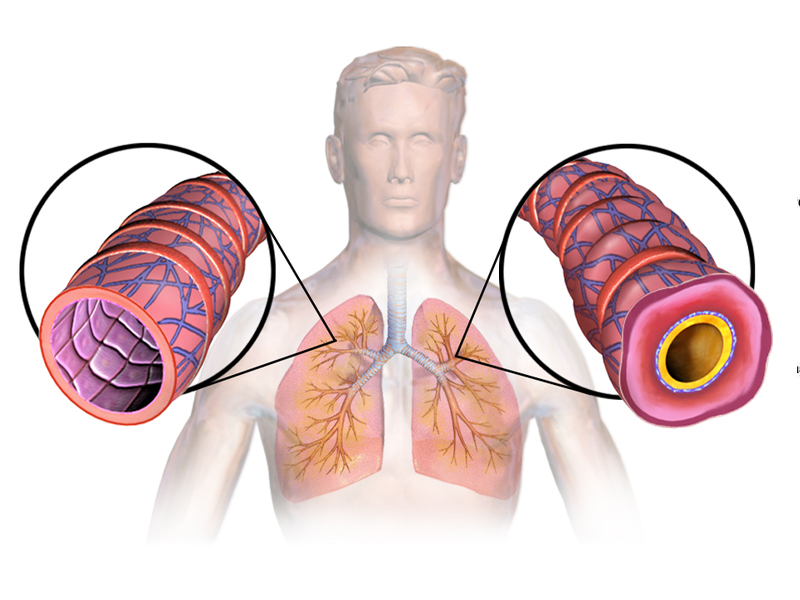Service
Asthma

Asthma is a chronic lung disease that inflames and narrows the airways, making it difficult to breathe. It's characterized by recurring symptoms like coughing, wheezing, chest tightness, and shortness of breath. These symptoms can be triggered by various factors, including allergens, irritants, exercise, or viral infections.
Key aspects of asthma
- Chronic Inflammation : Asthma involves inflammation of the airways, which can lead to swelling and mucus production, further narrowing the airways.
- Airflow Obstruction :
The inflammation and swelling restrict airflow, making it harder to exhale. - Reversible Airflow Limitation : Asthma is characterized by variable airflow obstruction that can be partially or completely reversed with medication.
Types of Asthma
- Triggered Symptoms : Symptoms can be triggered by various factors, including allergens (pollen, dust mites, pet dander), irritants (smoke, pollution), exercise, and respiratory infections.
- Varied Severity : Asthma can range from mild and infrequent symptoms to severe, persistent symptoms that require daily medication and can even lead to life-threatening attacks.
- Allergic Asthma : Triggered by allergens like pollen, dust mites, and pet dander.
- Eosinophilic Asthma : Characterized by high levels of eosinophils, a type of white blood cell, in the airways.
- Non-Eosinophilic Asthma : Asthma that does not involve elevated eosinophils.
Managing Asthma
- Avoid Triggers : Identifying and avoiding personal triggers is crucial for managing asthma.
- Medications : Medications like bronchodilators (for quick relief) and inhaled corticosteroids (for long-term control) are essential for managing asthma symptoms.
- Asthma Action Plan : A written plan developed with a healthcare professional can help individuals manage their asthma effectively, including recognizing worsening symptoms and knowing when to seek medical help.
